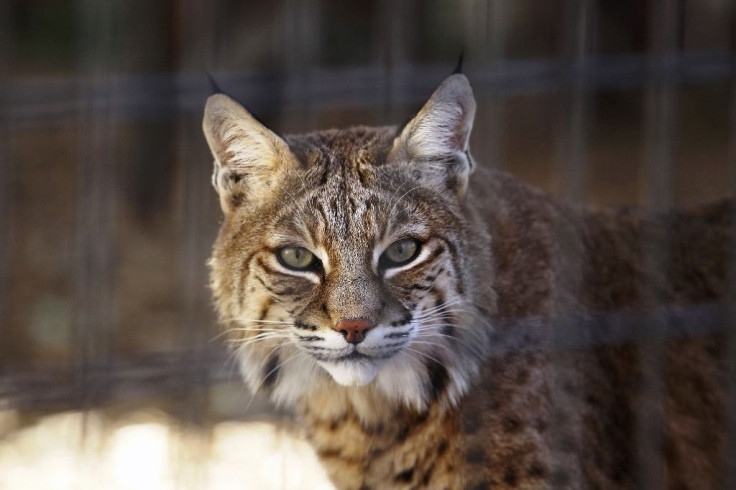VIDEO: Rabid Bobcat Attacks Man And Dog In Arizona

A bobcat that bit a man’s hand and attacked a dog in Arizona was rabid, the Arizona Game and Fish Department said Monday. The feline was killed by the department officials after it continued to be aggressive.
The attack was captured in a video that was then posted on Facebook by Jason Garrido, who witnessed the incident Sunday. The video shows a man trying to pull the male bobcat away from a German shepherd in Anthem. The man — identified as Steve Verschoor — reportedly saw the bobcat attacking the dog and tried to help the German shepherd’s owner separate the two animals. When Verschoor grabbed the feline away from the dog it bit his hand.
Read: Tiger Shark Bites North Carolina Man's Hand After He Tried Grabbing Its Tail
"I grabbed his paw and that freed him from the dog and somehow he clipped onto me and that's when this strange thing you see in the video where I kind of flip him completely around and then down and pried his mouth open to get my thumb out," Verschoor said, according to azfamily.com. "He bit me hard enough to break the nail in two, fracture the thumb, a main laceration here at the tip and then over here at the base and then over here it's just claw marks."
Verschoor is undergoing treatment for rabies and said even though he was glad to help he would be wary of such animals from now on.
"Now knowing that it was rabid and that explains the behavior, why he attacked the dog bigger than him, I would probably look for a stick or something not get my hand too close," Verschoor reportedly said.
As for his rabies treatment, he told the local network: "I did the initial shot in my arm, that was Sunday evening and now every four days, I have to find somewhere to get my next shot," he said. "I might be stuck having to go to the emergency room and paying that co-pay."
Meanwhile, after having to put the wildcat down due to its continued aggression, the Arizona Game and Fish Department said in a statement tests had been conducted on it and the results showed it had rabies. It also noted: “Because bobcats are rarely a threat to people and commonly coexist without incident, [the department] does not routinely relocate bobcats.”
Nathan Gonzalez, a spokesman for the department, reportedly said: "Temperament or over-aggression is common with wildlife when an animal has rabies. They tend to be in locations where they have access to food and water and that's in the neighborhoods we live in."
According to National Geographic, bobcats are the most abundant wildcats in the U.S.
“Although they are seldom seen, they roam throughout much of North America and adapt well to such diverse habitats as forests, swamps, deserts, and even suburban areas,” National Geographic states on its website.
The animal’s average life span is 10 to 12 years and it weighs between 11 to 30 pounds.
© Copyright IBTimes 2025. All rights reserved.






















